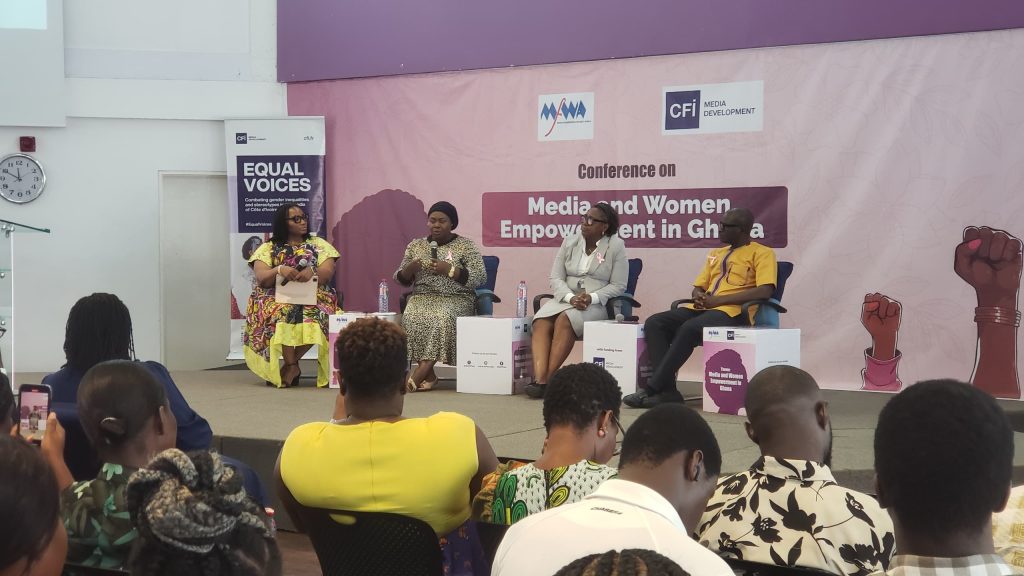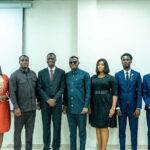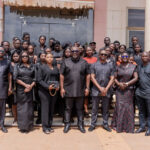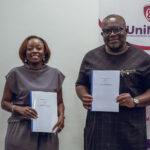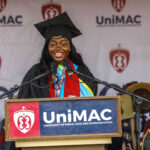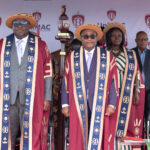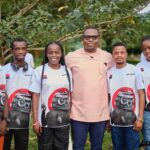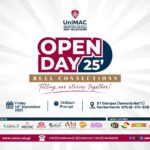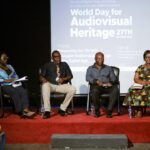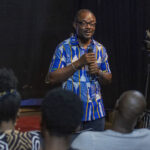Empowering Women in Media: A Call to Action for Equity at High-Level Conference in Ghana
The Media Foundation for West Africa (MFWA), in collaboration with prominent leaders across various sectors, hosted a powerful and insightful High-Level Conference on Media and Women Empowerment in Ghana, aiming to address the challenges faced by women in media and push for transformative action in the industry.
Held at the British Council in Accra, the event saw discussions from esteemed figures in the media, academia, government, and civil society, as well as students from the University of Media Arts and Communication (UniMAC), Institute of Film and Television (IFT) and Institute of Journalism (IJ) fostering an engaging and thought-provoking atmosphere.
The conference brought together notable media personalities like Nana Yaa Konadu Yiadom, Head of Social and Development Desk at Despite Media; William Nlanjerbor Jalulah, Program Officer at MFWA; and Kokui Selormey, former radio and television presenter and Executive Director of TBK Foundation for the Creative Arts, who also served as the moderator for the panel discussion. Key government representatives included Madam Kakarie Badiako, standing in for the Minister of Gender, Children, and Social Protection, Honorable Darkoa Newman, as well as representatives from the French Embassy and other academic leaders.
Mr. Sulemana Braimah, Executive Director of MFWA, who gave the welcome remarks emphasized the pressing need for gender equity in Ghana’s media and society at large. He highlighted the minimal representation of women in leadership and decision-making, noting, “We cannot build a better community, a better society, as well as a better nation by continuing to have just about 40 females represented in a Parliament of 270 primary nominees and having less than 5 percent of women being elected into our offices.”
Mr. Sulemana Braimah stressed that amplifying women’s voices in media is a critical step toward equity, explaining that “the media remains the most powerful tool for information dissemination, for amplification of voices, and for agenda setting.” Citing research, he added, “Women's voices make up less than a quarter of those whose views and voices are heard in the media and news spaces. Women also make up just about 22 percent of news sources in Africa, and the situation in Ghana is no different.” This striking underrepresentation, he argued, perpetuates gender inequality, as evidenced by the “male-dominated voices across our networks in Ghana, as if to suggest that only men have the ideas and solutions to the problems that confront us.” He said.
Madam Kakarie Badiako, representing the Minister of Gender, Children, and Social Protection, emphasized the crucial role media plays in either reinforcing stereotypes or promoting equity. She highlighted the broader role of gender representation, noting, “Gender equality in the media goes beyond balanced representation. It involves ensuring that every voice, regardless of social status and class, has an equal opportunity to be heard, respected, and valued.” She urged the media to dismantle biases and foster an environment where diverse stories and perspectives are shared.
“There is still much work to be done,” Madam Kakarie Badiako stated. “Women are mostly underrepresented in media and leadership positions and often face discrimination in the types of roles they play or the stories they are asked to cover.” She reiterated that for media to help dismantle gender inequality, it must actively address its own biases. “The media today, from traditional media to online platforms, still influences our perceptions and ideas about the roles of girls and women in society, and I believe that together, we can achieve much in this nation and beyond in our reportage,” she concluded.
Dr. Charity Binka, Executive Director of Women and Change (WOMEC), presented a roadmap for advancing gender equality within Ghana’s media. The document, developed under a two-year project titled “Equal Voices—Promoting Gender Equality in Media in Ghana,” aims to combat gender-based stereotypes and advocate for more women in leadership roles. Her presentation underscored current disparities, citing that “women make up only 25% of news subjects and 30% of leadership roles in media organizations.”
Key recommendations included promoting equitable assignments for both genders, establishing workplace support systems for female journalists, creating policies to combat gender-based violence, integrating gender studies in journalism curricula, and conducting ongoing research into gender inequalities in media. These strategies, Dr. Binka noted, are necessary to create an inclusive media landscape.
Professor Abena Animwaa Yeboah-Banin, Head of the Department of Communication Studies at the University of Ghana, delivered the keynote address, shedding light on the complex challenges women face in media careers. She highlighted how career progression for women is often impeded by societal expectations and workplace biases. “If you start your career today with a male colleague, chances are that when we come looking for both of you in ten years, that person is the one giving you orders,” Professor Abena Animwaa Yeboah-Banin remarked, emphasizing the systemic barriers women encounter.
She underscored the scarcity of women in executive roles, with only “6 percent of women holding executive and senior management positions in the country.” This disparity, she said, directly impacts gender balance in newsrooms and has broader implications for society’s perception of women. “Discrimination only thrives where there are beneficiaries. The people who suffer it must push for change; otherwise, change will not come… so we need more deliberate action in addressing the inequalities that women in media face,” she asserted.
The event concluded with a panel discussion titled “From Policy to Action: Advancing Gender Equality in the Ghanaian Media through the Affirmative Action Law.” The discussion, moderated by Kokui Selormey, featured media experts including Nana Yaa Konadu Yiadom, William Nlanjerbor Jalulah, and Mrs. Ewuradwoa S. Tabicca, who dissected the affirmative action policies necessary for bridging the gender gap in Ghanaian media.
This timely conference underscored the role of media as a vehicle for change, calling upon all sectors to play their part in fostering a more equitable media landscape in Ghana. The gathering ended on an optimistic note, with a collective pledge from all participants to take actionable steps towards dismantling biases, amplifying women’s voices, and creating a media environment where both men and women have an equal platform to lead and inspire.
By Makida El Husseini,
Level 400 Broadcast Journalism Student.
